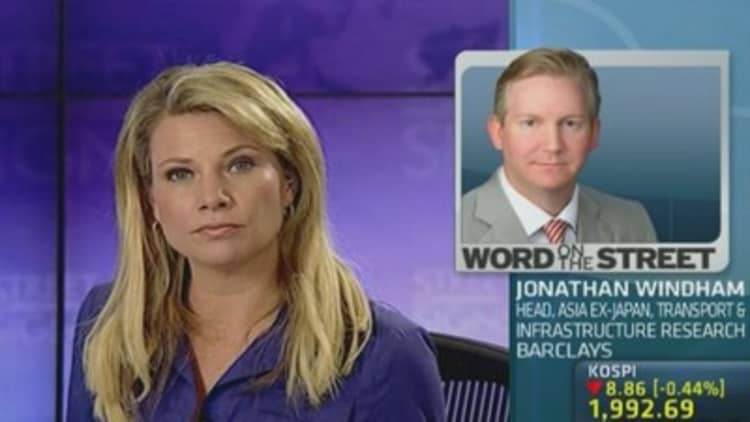China Investment Corporation, the world's fourth-largest sovereign wealth fund, has been accused by the country's top auditor of mismanagement, dereliction of duty and poor due diligence just seven years after its inception.
The National Audit Office said CIC – an investor in big US financial institutions such as Blackstone and Morgan Stanley – had incurred unquantified losses on overseas investments because of this mismanagement.
CIC, which has $650 billion in assets under management, has made some $200 billion in investments around the world since it was set up in 2007 to earn higher returns on the country's burgeoning foreign exchange reserves. In Britain it has taken stakes in high-profile assets such as London's Canary Wharf and Heathrow airport.
Read MoreChina's May home prices rose at slowest pace this year
The auditor did not specify the size of CIC's losses or which overseas investments had problems. It also refused to elaborate on the scope of its investigation when contacted by the Financial Times.
However the report found that between 2008 and 2013, CIC made 12 overseas investments that faced losses or potential losses because of "dereliction of duty, inadequate due diligence, a lack of post-investment management and other problems".
Some other investments suffered from irregularities in the hiring of external managers, the auditor found.
Read MoreRelatives shed assets as China's leader fights graft
One senior financial official familiar with the matter said the fund's internal management was in a mess and many of its investments were likely to run into difficulties because of mismanagement.
Using phrases customary in such reports, the auditor said it had passed evidence of suspected crimes and violations of Communist Party discipline at CIC to "relevant departments" for further investigation and action. This will not necessarily lead to an official inquiry, however. The auditor conducts numerous investigations each year and often finds legal and regulatory violations that are never mentioned again.
Read MoreChina-UK visit: Are the great expectations justified?
The auditor on Wednesday also found that Bank of China and Agricultural Development Bank, a state lender tasked with supporting Beijing's rural development policies, had issued billions of renminbi worth of "irregular" loans in recent years.
The report is only supposed to cover the year 2012 and will not be seen as an indictment of the CIC's current chairman, Ding Xuedong, who took over a year ago.

However, it could prove embarrassing to Lou Jiwei, China's reformist Finance Minister, who was the fund's chairman from its inception until last March.
Internal problems at the fund were the main reason the Communist Party found it so hard to replace Mr Lou when he was promoted to Finance Minister because most eligible senior officials feared future losses would tarnish their own careers, a person familiar with CIC's inner workings said.
More from the Financial Times:
World Gold Council looks at 'fix' reform
Bush acolytes use Iraq to defend records
Ukraineoutlines plans for ceasefire
CIC did not respond to requests for comment on Wednesday.
The report gave more detail on problems discovered in CIC's domestic operations. It scolded several Chinese financial institutions owned by the fund for concentrating too much on real estate investments in violation of government directives.
It also said CIC's main domestic subsidiary lost Rmb1.26 billion ($202 million) in potential investment gains in 2011 by selling its holding in a Chinese securities company for its cost price without conducting an asset appraisal as required.
Read MoreChina's fine-tuning adds up to stimulus by stealth
As well as investing a portion of the country's $4 trillion foreign exchange reserves in higher-yielding offshore assets, CIC also holds majority stakes in most of the country's largest financial institutions on behalf of the state.
The auditor found CIC's management of its own internal finances was "relatively weak" and some of its bookkeeping and account management did not comply with regulations.
CIC also spent 10s of millions of RMB buying commercial medical insurance and covering personal income tax for its own employees.
Read MoreMini stimulus working its magic, China data shows
CIC reported an annual return of 10.6 per cent in 2012, following a 4.3 per cent loss in 2011.
The fund has said it earned returns of more than 8 per cent last year and its cumulative annualized return since it was set up in 2007 is 5 per cent.

